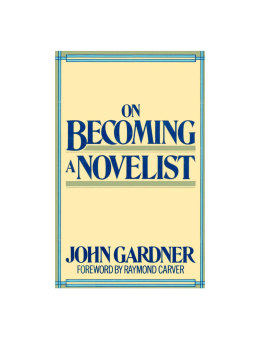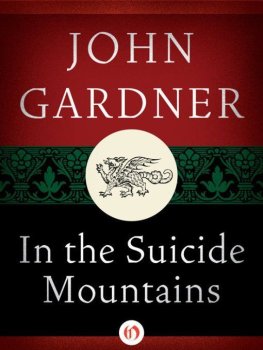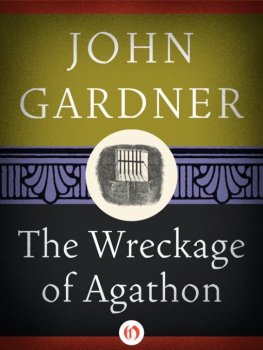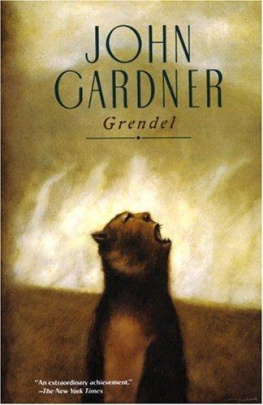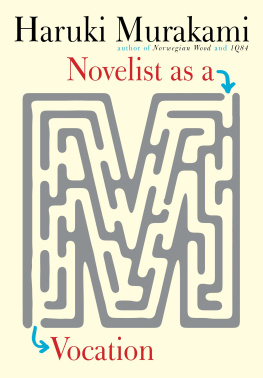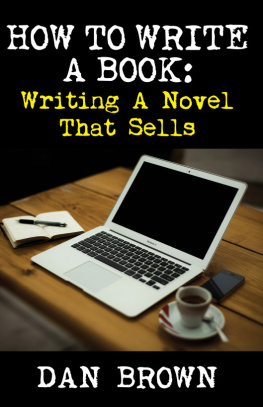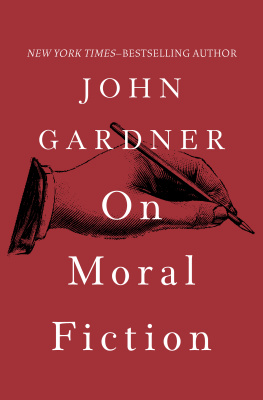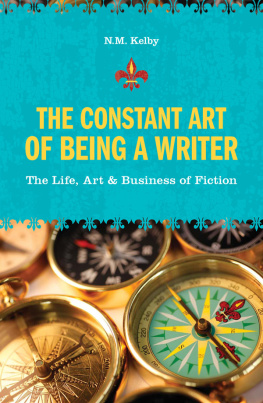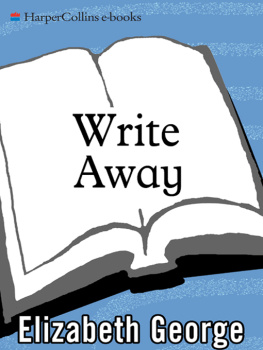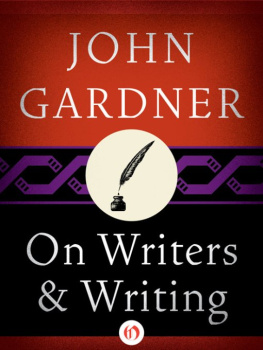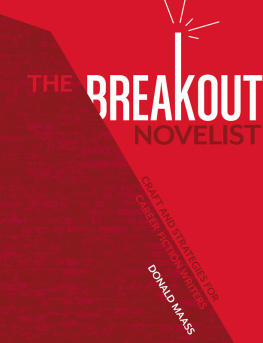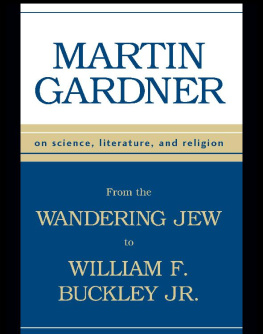
O N B E C O M I N G A N O V E L I S T
By the same author:
The Alliterative Morte Arthure, The Owl and the Nightingale,and Five Other Middle English Poems
The Art of Living
A Child's Bestiary
The Complete Works of the Gawain Poet
Construction of Christian Poetry in Old EnglishThe Construction of the Wakefield CycleDragon, Dragon and Other Tales
The Forms of Fiction (ed. with Lennis Dunlap)Grendel
Gudgekin the Thistle Girl
In the Suicide Mountains
Jason and Medeia
The King of the Hummingbirds
The King's Indian
The Life and Times of Chaucer
Mickelsson's Ghosts
Morte Darthur Notes
Nickel Mountain
October Light
On Moral Fiction
Poems
The Poetry of Chaucer
The Resurrection
Sir Gawain and the Green Knight Notes
The Sunlight Dialogues
Vlemk the Box Painter
The Wreckage of Agathon

ON
BECOMING
A
NOVELIST
John Gardner
Foreword by Raymond Carver
HARPER & ROW, PUBLISHERS, NewYork
Cambridge, Philadelphia, San Francisco, LondonMexico City, Sao Paulo, Sydney
For all my students
CONTENTS
Foreword by Raymond Carverxi
Prefacexxi
I. The Writer's Nature 1
II. The Writer's Training and Education 73
III. Publication and Survival 98
IV. Faith 119
Index 147
ACKNOWLEDGMENTS
Some of the plot ideas examined in this book came out of writers' workshop discussions at SUNY-Binghamton.
FOREWORD
A long time agoit was the summer of 1958my wife and I and our two baby children moved from Yakima, Washington, to a little town outside of Chico, California. There we found an old house and paid twenty-five dollars a month rent. In order to finance this move, I'd had to borrow a hundred and twenty-five dollars from a druggist I'd delivered prescriptions for, a man named Bill Barton.
This is by way of saying that in those days my wife and I were stone broke. We had to eke out a living, but the plan was that I would take classes at what was then called Chico State College. But for as far back as I can remember, long before we moved to California in search of a different life and our slice of the American pie, I'd wanted to be a writer. I wanted to write, and I wanted to write anythingfiction, of course, but also poetry, plays, scripts, articles for Sports Afield, True, Ar-gosy, and Rogue (some of the magazines I was then reading), pieces for the local newspaperanything that involved putting words together to make something coherent and of interest to someone besides myself. But at the time of our move, I felt in my bones I had to get some education in order to go along with being a writer. I put a very high premium on education thenmuch higher in those days than now, I'm sure, but that's because I'm older and have an education. Understand that nobody in my family had ever gone to college or for that matter had got beyond the mandatory eighth grade in high school. I didn't know anything, but I knew I didn't know anything.
So along with this desire to get an education, I had this very strong desire to write; it was a desire so strong that, with the encouragement I was given in college, and the insight acquired, I kept on writing long after "good sense" and the "cold facts"the "realities" of my life told me, time and again, that I ought to quit, stop the dreaming, quietly go ahead and do something else.
That fall at Chico State I enrolled in classes that most freshman students have to take, but I enrolled as well for something called Creative Writing 101. This course was going to be taught by a new faculty member named John Gardner, who was already surrounded by a bit of mystery and romance.
It was said that he'd taught previously at Oberlin College but had left there for some reason that wasn't made clear. One student said Gardner had been firedstudents, like everyone else, thrive on rumor and intrigueand another student said Gardner had simply quit after some kind of flap. Someone else said his teaching load at Oberlin, four or five classes of freshman English each semester, had been too heavy and that he couldn't find time to write. For it was said that Gardner was a real, that is to say a practicing, writersomeone who had written novels and short stories. In any case, he was going to teach CW 101 at Chico State, and I signed up.
I was excited about taking a course from a real writer. I'd never laid eyes on a writer before, and I was in awe. But where were these novels and short stories, I wanted to know. Well, nothing had been published yet. It was said that he couldn't get his work published and that he carried it around with him in boxes. (After I became his student, I was to see those boxes of manuscript. Gardner had become aware of my difficulty in finding a place to work. He knew I had a young family and cramped quarters at home. He offered me the key to his office.
I see that gift now as a turning point. It was a gift not made casually, and I took it, I think, as a kind of mandatefor that's what it was. I spent part of every Saturday and Sunday in his office, which is where he kept the boxes of manuscript. The boxes were stacked up on the floor beside the desk. NickelMountain, grease-pencilled on one of the boxes, is the only title I recall. But it was in his office, within sight of his unpublished books, that I undertook my first serious attempts at writing.) When I met Gardner, he was behind a table at registration in the women's gym. I signed the class roster and was given a course card. He didn't look anywhere near what I imagined a writer should look like. The truth is, in those days he looked and dressed like a Presbyterian minister, or an FBI man. He always wore a black suit, a white shirt, and a tie. And he had a crewcut. (Most of the young men my age wore their hair in what was called a "DA" stylea "duck's ass"the hair combed back along the sides of the head onto the nape and plastered down with hair oil or cream.) I'm saying that Gardner looked very square. And to complete the picture he drove a black four-door Chevrolet with black-wall tires, a car so lacking in any of the amenities it didn't even have a car radio.
After I'd got to know him, had been given the key, and was regularly using his office as a place to work, I'd be at his desk in front of the window on a Sunday morning, pounding away on his typewriter. But I'd be watching for his car to pull up and park on the street out in front, as it always did every Sunday. Then Gardner and his first wife, Joan, would get out and, all dressed up in their dark, severe-looking clothes, walk down the sidewalk to the church where they would go inside and attend services. An hour and a half later I'd be watching for them as they came out, walked back down the sidewalk to their black car, got inside and drove away.
Gardner had a crewcut, dressed like a minister or an FBI man, and went to church on Sundays. But he was unconventional in other ways. He started breaking the rules on the first day of class; he was a chain smoker and he smoked continuously in the classroom, using a metal wastebasket for an ash-tray. In those days, nobody smoked in a classroom. When another faculty member who used the same room reported on him, Gardner merely remarked to us on the man's pettiness and narrow-mindedness, opened windows, and went on smoking-For short story writers in his class, the requirement was one story, ten to fifteen pages in length. For people who wanted to write a novelI think there must have been one or two of these soulsa chapter of around twenty pages, along with an outline of the rest. The kicker was that this one short story, or the chapter of the novel, might have to be revised ten times in the course of the semester for Gardner to be satisfied with it.
Next page
